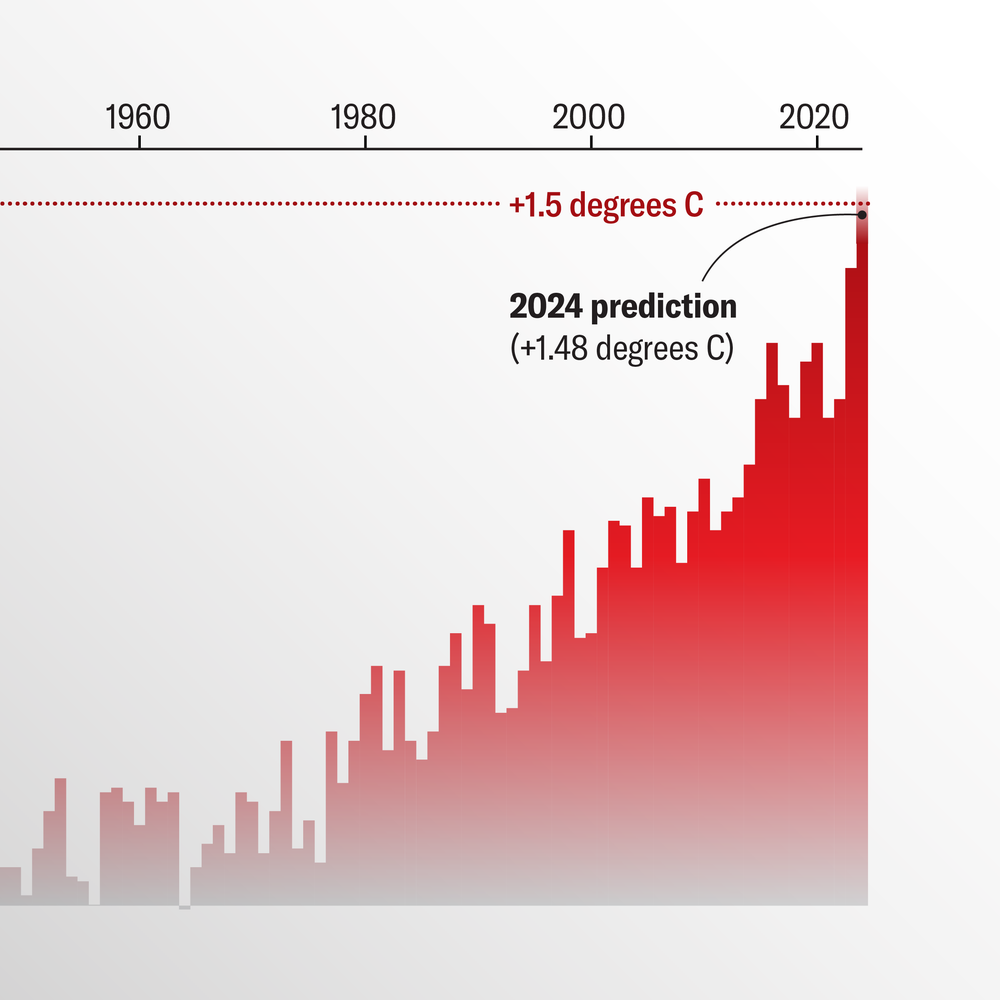2024 is on course to be the hottest year on record, according to new data.
Figures from the European Union’s Copernicus Climate Change Service reveal that the average global temperature in November was 1.62°C above preindustrial levels.
With more heatwaves, wildfires, and extreme weather conditions, they’re becoming more frequent and intense due to rising temperatures.
This comes at a time in which the world is struggling to cope with the effects of climate change, fuelling natural disasters and threatening ecosystems.
As global warming now exceeds 1.5°C, there are calls to take immediate action to reduce emissions. Copernicus uses billions of measurements from satellites, ships, aircraft, and weather stations to aid its climate calculations.
Its records go back to 1940, but other sources of climate data—such as ice cores, tree rings, and coral skeletons—allow scientists to expand their conclusions using evidence from much further in the past.
Scientists say the period being lived through right now is likely the warmest the planet has been for the last 125,000 years.
Last month ranked as the second-warmest November on record after November 2023. Portugal experienced its hottest-ever November, the country’s meteorological agency said on Thursday, with the average air temperature 2.69C (4.84F) higher than the average for 1981-2010.
The temperature rises above the critical 1.5C threshold.
In another grim milestone, 2024 will be the first calendar year more than 1.5C hotter than pre-industrial times before humanity started burning large volumes of fossil fuels.
Scientists warn that exceeding 1.5C over a decades-long period would greatly imperil the planet, and the international community agreed under the Paris Climate Accord to strive to limit warming to this safer threshold.
Carbon dioxide emissions from burning fossil fuels are the main cause of climate change. Emissions from fossil fuels keep rising despite a global pledge to move the world away from coal, oil, and gas.
Scientists say global warming is making extreme weather events more frequent and ferocious, and even at present levels, climate change is taking its toll.
At UN climate talks in November, wealthy countries committed $300bn annually by 2035, an amount decried as woefully inadequate.









